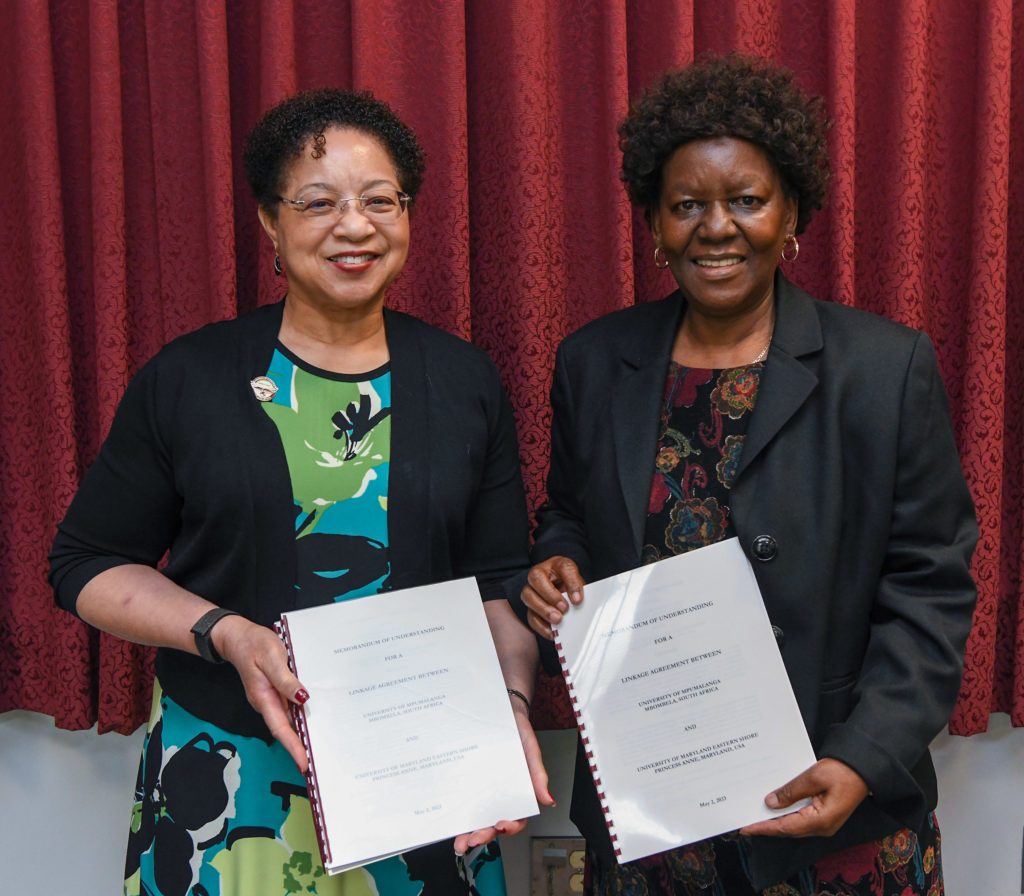
The University of Maryland Eastern Shore hosted a delegation from Mbombela, South Africa on May 1-4. Representatives from the University of Mpumalanga met with UMES administrators, faculty and researchers from the schools of agricultural and natural sciences, and business and technology to explore collaborative activities.
“There are many similarities between the two universities in the areas of agriculture, natural sciences, hospitality management and information technology,” said Dr. Moses T. Kairo, dean of UMES’ School of Agricultural and Natural Sciences. “Faculty may find it advantageous to collaborate on research opportunities as well as engage students in experiential learning programs.”
UMES President Heidi M. Anderson (at left, on left) and Mpumalanga Vice Chancellor Thoko Mayekiso (at left, on right) signed an agreement representing a friendship and pathway to mutually beneficial exchanges.
“Collaboration is the way forward to address the challenges the world faces today and in the future,” Anderson said. “This memorandum of understanding signifies a friendship to stimulate scientific cooperation and strengthen teaching, research and outreach activities to promote development in South Africa, broaden the international experience of UMES students and faculty and promote cross-cultural knowledge and understanding.”
The South African visitors toured the UMES campus along with the Paul S. Sarbanes Coastal Ecology Center near Assateague Island. Departmental visits focused on engineering and aviation sciences; hospitality and tourism management; agriculture, food and resource sciences, human ecology and natural sciences, which align with academic programs at the South African university.
“The University of Mpumalanga places great value on collaboration, and we have identified partnerships as drivers enabling us to achieve our vision as ‘a leading African university creating opportunities for sustainable development through innovation,’” said Mayekiso.
A quote by theoretical physicist and Nobel Prize laureate Kenneth G. Wilson seems a fitting summary: “The hardest problems of pure and applied science can only be solved by the open collaboration of the world-wide scientific community.”
Gail Stephens, agricultural communications and media associate, University of Maryland Eastern Shore, School of Agricultural and Natural Sciences, 410-621-3850, gcstephens@umes.edu
Photos by Todd Dudek, agricultural communications, University of Maryland Eastern Shore, School of Agricultural and Natural Sciences, tdudek@umes.edu

Caption:

